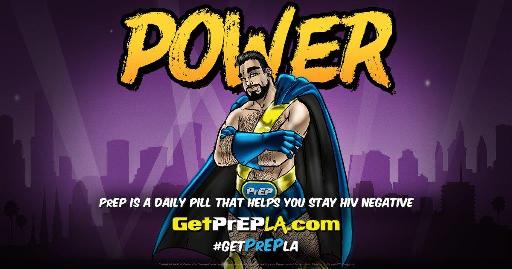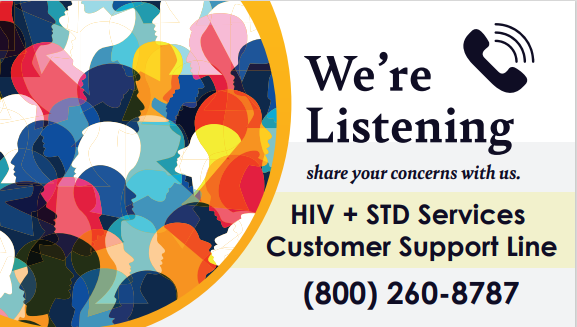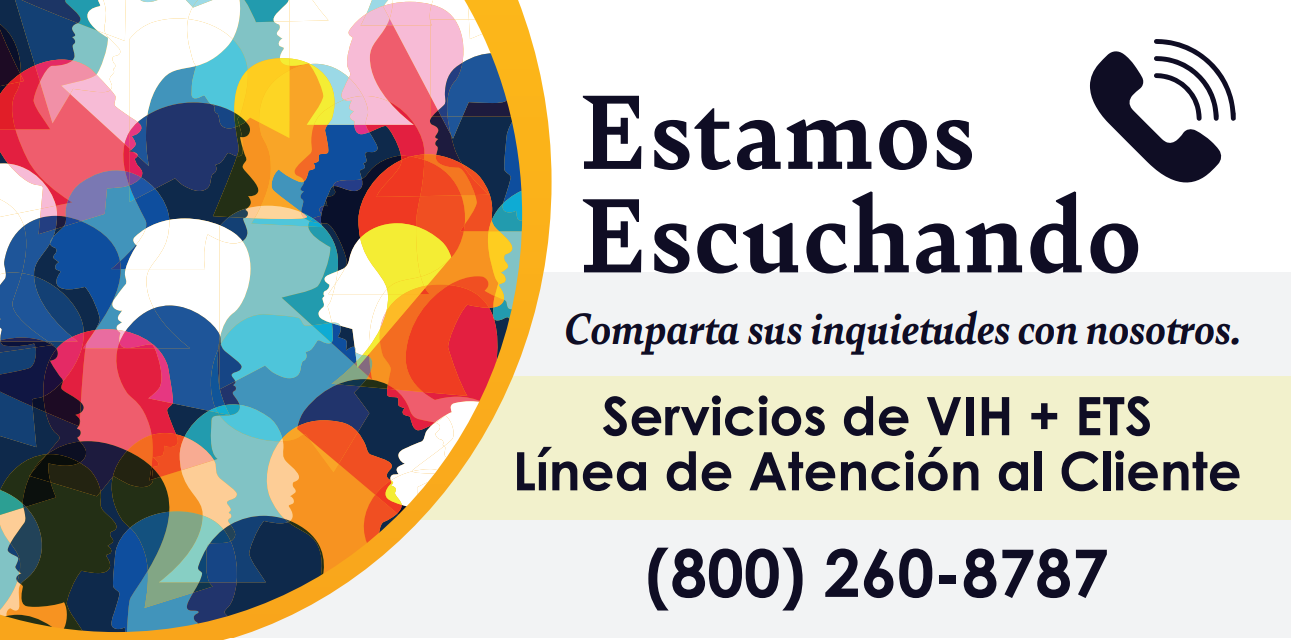|
Community and Provider Information and Resources
|
Los Angeles County Department of Public Health
Division of HIV and STD Programs
Gas Company Tower
555 W. 5th Street, 34th Floor
Los Angeles, CA 90013
Phone:(213) 351-8000
Fax: (213) 738-0825
Email: DHSP@ph.lacounty.gov
Office Hrs: 8 a.m.-5 p.m. M-F
|
|
Social Marketing Campaigns |
|
|
Health Content and Privacy Info |
|
|
| PEP Information for Patients |

Where Can I Get PEP in Los Angeles County?
-
PEP is an emergency medication
that you must take within 72 hours of a possible HIV exposure.
Talk immediately to your regular doctor or
click here for more options in LA County.
-
The Los Angeles Gay and Lesbian
Center in Hollywood - 323-993-7500
can also provide assistance. -
For more information call the LA
County PEP warmline - 1-844-YEA-PREP (Note,
the phone numbers will only be answered during
regular business hours, so if you are concerned
about a possible HIV exposure, go directly to your
medical provider or the emergency room.)
What is PEP?
Is PEP Right for Me?
-
If you are HIV-negative,
or don't know your HIV status, and
answer "yes"
to any of the questions below,
talk to your
doctor or go to the emergency room
for PEP right away.
-
Have you had
condomless (i.e.
raw) anal or vaginal
sex, within the past
72 hours, with an
HIV-positive person
or person whose HIV
status you don't
know?
-
Did the condom break
during anal or
vaginal sex, within
the past 72 hours,
with an HIV-positive
person or person
whose HIV status you
don't know?
-
Did you share a
needle or other
equipment to prepare
drugs (cotton,
cookers, water),
within the past 72
hours, with an
HIV-positive person
or person whose HIV
status you don't
know?
-
Were you sexually
assaulted?
PEP: Know the Basics
PEP can protect you if you had anal
or vaginal sex without a condom with
someone who has, or might have, HIV.
PEP can also prevent HIV if you were
exposed while injecting drugs.
Act
Fast.
PEP works
best if started right away. Go to an emergency room
or clinic as soon as possible and ask about PEP. You
should begin PEP no more than 72 hours after
exposure.
Take PEP for 28 Days.
PEP
is taken in pill form for 28 days. You need to take
PEP each day to keep enough medicine in your body to
stop HIV. If you want to stop taking PEP, talk to
your doctor first.
Starting PEP. When
you start PEP, you may be given a
"starter pack" with a few days'
supply of pills. This gives
you some time to fill a prescription
for the rest of the 28 days.
Effectiveness of PEP.
PEP is much more effective at
stopping HIV if you take all the
pills for the full 28 days. It
is very important to never skip a
dose. It is best to take your
pills at the same time every day.
Know about Common Side
Effects.
PEP
can have mild side effects, like stomach pain and
headache.
Be Ready to Follow-Up.
After
you finish taking PEP, your doctor will give you an
HIV test to make sure PEP worked.
Find Out about Paying
for PEP.
Many
insurance plans including Medi-Cal cover PEP. Assistance
may be available if you are uninsured.
Consider PrEP.
If
you often worry about exposure to HIV, ask
your
doctor about PrEP
- a daily pill that helps prevent HIV.

How does PEP stop HIV?
-
PEP contains some of the same
medicines that people with HIV take to stay healthy.
If you are exposed to HIV, it takes a few days for
an HIV infection to take hold in your body. As soon
as you start PEP, these medicines begin to stop the
virus from multiplying. As you continue taking PEP
for the full 28–days, cells with HIV die and the
virus stops spreading to the rest of your body.
Is PEP Safe?
If I take PEP, do I still have to use condoms?
-
PEP
does not provide full protection against HIV.
Condoms give you and your partners additional
protection, even while on PEP. Condoms also protect
against other sexually transmitted infections (STIs)
and unintended pregnancy.
-
PEP is for emergency situations.
If you worry about regular exposure to HIV through
sex or while injecting drugs,
PrEP may
be a better option for you.
|
|
For Providers
Customer Support


|
|